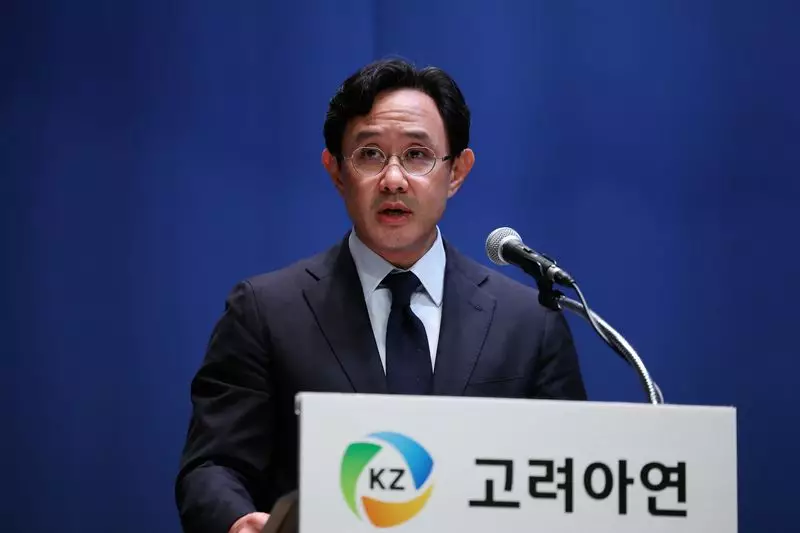Korea Zinc, the largest zinc refiner in the world, is currently entangled in a complex web of corporate governance issues, shareholder disputes, and regulatory hurdles. The company recently announced its decision to abandon a planned issuance of new shares valued at $1.8 billion. This move, initially intended to help the firm enhance its market standing and ward off an impending takeover bid, has elicited significant concerns from both investors and regulators.
The decision to withdraw the share issuance proposal appears to be a strategic retreat from Chairman Yun B. Choi, who has found himself in a precarious position amid increasing scrutiny. According to a statement from Korea Zinc, the company recognizes the importance of heeding the concerns of shareholders and the market. This pivot raises questions about the effectiveness of the initial proposal, seen by many as an attempt to consolidate power and fend off challenges from rival stakeholders.
Investors reacted in mixed fashion to the news. Following the announcement of the withdrawal, Korea Zinc’s shares initially saw a modest rebound, gaining approximately 6%. However, that optimism quickly evaporated, resulting in a sharp decline of 7% later in the trading session. This volatility underscores the precarious state of investor confidence in the company’s leadership and strategic direction.
The crux of the conflict lies in the escalating power struggle between Korea Zinc’s founding family, led by Choi, and two prominent competitors: Young Poong and MBK Partners. Recent moves by these stakeholders to increase their holdings to nearly 40% have hastened the urgency of the situation, as they are aggressively seeking to challenge the current leadership structure. By nominating 14 new directors for the board, they aim to seize control of decision-making processes within the company.
The potential for a contentious battle at the upcoming shareholder meeting is significant, as the rival factions grapple for influence over Korea Zinc’s future direction. However, the consequences of this internal tussle extend beyond mere corporate governance; they impact the broader market perception of the firm’s stability and future prospects. Notably, as the National Pension Service—a significant institutional investor—holds over 5% of the company’s shares, their influence could play a pivotal role in determining the victor in this corporate skirmish.
Korea Zinc’s rapid decision to backtrack on the share issuance was exacerbated by an investigation initiated by South Korea’s financial market watchdog agency. The Financial Supervisory Service expressed concerns over potential unfair practices related to the recent share sale announcement. The regulatory body even mandated a revision of Korea Zinc’s stock exchange filing, reflecting unease about the company’s governance practices and transparency.
As these regulatory actions unfold, the market’s confidence in Korea Zinc is likely to face further challenges. The involvement of regulatory authorities indicates a broader concern regarding corporate governance within South Korean businesses—an issue magnified by this internal struggle. The fallout from such investigations could have long-term repercussions for the company’s reputation and its stock performance, as investors grow wary of possible instability.
In light of these tumultuous developments, Korea Zinc has expressed intentions to enhance the independence of its board and improve overall governance. However, concrete plans are scarce, leaving shareholders questioning the sincerity of these commitments. Chairman Choi, who has deep familial ties to the founding of the company and a prestigious academic background, has a challenging path ahead. His ability to navigate these corporate waters while regaining trust from stakeholders will be crucial in the coming months.
With a special shareholder meeting on the horizon, Korea Zinc stands at a significant crossroads. The decisions made in the coming weeks will either fortify Choi’s leadership or pave the way for a fundamental shift in corporate control. As the narrative unfolds, both internal and external observers will be closely monitoring how this saga of corporate struggle plays out in one of South Korea’s leading industrial firms.

